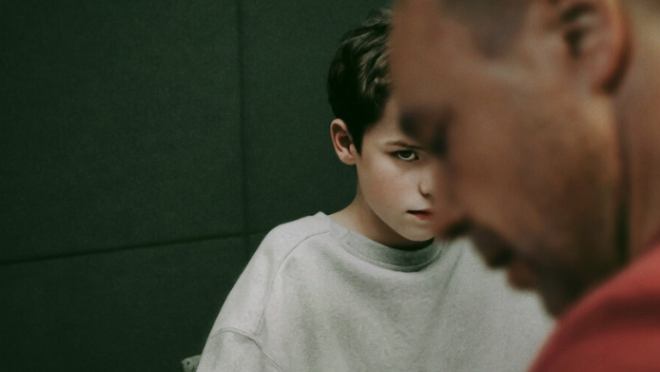Netflix’s Adolescence takes on internet's incel culture—and parents should be worried
Netflix’s Adolescence takes on internet's incel culture—and parents should be worried

Warning: This review contains spoilers, as the discussion demands our attention to an issue we cannot overlook—incel culture.
Imagine a 13-year-old boy, sound asleep in his room, when a team of heavily armed police officers storms in, blasting through the front door in the early hours of the morning. Before he can grasp what’s happening, he’s handcuffed and arrested for murder.
His parents watch in horror as the police insist their son committed a heinous crime—killing his classmate, Katie, the night before. The boy, fragile and terrified, is bundled into a police car and taken to the station. It seems like a terrible mistake. How could Jamie, a quiet teenager, be capable of such brutality?
Consisting of four episodes and filmed in just one long continuous shot, the first two of the limited series Adolescence plunge viewers into the harsh realities of the juvenile justice system, revealing how detectives meticulously build their case. Jamie denies any involvement at first, and honestly, he sounds so convincing. His father, just like most of the audience I presume, Eddie (Stephen Graham), chosen as his appropriate adult, clings to the belief his boy cannot commit such crime. But as the 13 agonising months unfold, his denial gives way to devastation.
The show doesn’t keep the audience guessing—Jamie did kill Katie. The crime is real, backed by CCTV footage and overwhelming evidence. The real question is: why? And that’s where the story becomes even more unsettling—leading us into the dark world of online incel culture, which Jamie was deeply disturbed by. To put it simply, an incel is someone who feels lonely and frustrated because they struggle to find romantic or social connections, often blaming others for it.
DI Luke Bascombe (Ashley Walters, delivering a masterfully bleak performance) begins to grasp the depth of the issue when his own son tells him what some simple emojis meant something really disturbing in Katie’s Instagram comments. And here is the most shocking revelation: Jamie had been bullied and radicalised by incel culture—a toxic online space where young men are taught they are entitled to take from women whatever they please.
The show mentions the bad influence of Andrew Tate, the self-help guru on the internet, on the teenagers. Officer Mish puts this “incel or involuntary celibate stuff” as “Andrew Tate shite”. But let’s face it, the bald man’s misogynistic rhetoric that has seeped into every corner of the internet. And that is sure as hell something to be worried about.
The hour-long episodes feel longer—not due to pacing issues, but because of the sheer intensity and realism of the performances. The show’s most haunting episode is its penultimate one, a near-single-scene psychological confrontation between Jamie and child psychologist Briony (Erin Doherty). With surgical precision, she dismantles his defences, pushing him closer to truths he refuses to acknowledge. Her performance is chilling, but it’s 15-year-old Cooper who delivers the most astonishing feat—his portrayal of Jamie teetering on the edge of radicalised misogyny is both brilliant and deeply unsettling.
The show refuses to offer easy explanations—there’s no abusive home, no dark family secret. Instead, Adolescence asks an urgent question: what are we teaching boys, and how do we expect them to navigate a world where masculinity still demands they do so alone? Meanwhile, the victim remains ever-present, a reminder that as society struggles to address these issues, more girls and women will continue to pay the price.
While Adolescence is rooted in the UK’s rising problem of stabbing incidents, its themes are just as relevant in Bangladesh, where digital spaces remain largely unregulated and equally dangerous. The show leaves one unsettling takeaway: parents need to pay attention.
Adolescence is streaming on Netflix now.


